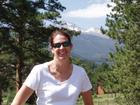After discovering more about research agendas last week, I started to look for research agendas in LS, especially among professional organizations and grant funding agencies with a focus on serials. I looked at NASIG, ALCTS-CRS, UKSG, ALISE, OCLC, and IMLS. What I discovered is that most of them lack explicit research agendas but have missions, goals, areas of study, and/or themes in which a research agenda is implied. Some are more research oriented and some are more praxis oriented. For instance, it's evident from their web pages and their conference programs that both NASIG and UKSG are much more focused on the practitioners' side of librarianship.
ALISE and ALCTS-CRS also have implicit research agendas (as far as I tell, there is one place on ALISE's web site that mentions a research agenda but I couldn't find the agenda itself). Both organizations are clearly interested in and supportive of LIS research although the types of research differ between them. ALCTS-CRS's agenda is evident in it's committees and their charges. Their themes include education, research and publication, serials standards. ALISE's agenda is more related to education (for obvious reasons) and includes scholarship and research as well as pedagogy and curricula. Of these four organizations, ALISE is the only one that makes grants to fund research.
Both ALISE and OCLC give research grants (in fact, they give one together the results of which are presented at ALISE's annual conference) as does IMLS. In fact, based on my experience at ALISE's annual conference a couple of weeks ago, IMLS is one of the biggest grant funding agencies for librarianship. So it is interesting that they also do not have an explicit research agenda but instead have "goals":
- To promote improvements in library services in all types of libraries in order to better serve the people of the United States.
- To facilitate access to resources and in all types of libraries for the purpose of cultivating an educated and informed citizenry; and
- To encourage resource sharing among all types of libraries for the purpose of achieving economical and efficient delivery of library services to the public. (still from the "about" page linked above).
